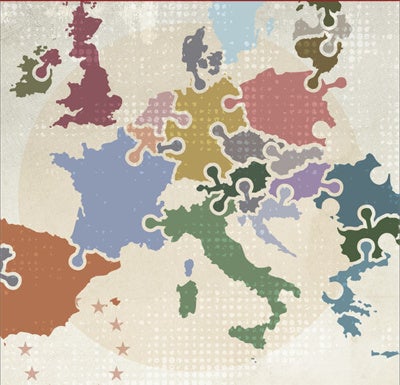 The European project is suffering. Once a beacon for a more just and competitive society, the European Union is still struggling to recover from the severe 2008 financial crisis. And despite the international goodwill that initially brought together old foes and diverse economies, cultures, and societies, Europe is being revisited by its old demons: nationalism, populism, and scapegoating.
The European project is suffering. Once a beacon for a more just and competitive society, the European Union is still struggling to recover from the severe 2008 financial crisis. And despite the international goodwill that initially brought together old foes and diverse economies, cultures, and societies, Europe is being revisited by its old demons: nationalism, populism, and scapegoating.
On the political front, Brexit is still a saga of unknown outcomes. Emmanuel Macron and Angela Merkel, the European Union’s core leaders, are experiencing crippling poll numbers (Merkel stepped down as her party’s leader in November), and nationalists are gaining top seats in elections across the continent. The traditional political center of conservatives and social democrats is shrinking, leaving ample room for EU skeptics and illiberal voices to flourish. In the current political climate, there is a real political risk that the 2019 elections for the European Parliament could bring a blocking minority of nationalists who oppose any form of immigration or integration—if not an outright majority.
The fringes of European politics are becoming a new center of gravity. In countries like Hungary, Poland, Austria, Italy, and the Netherlands, an alliance of far-right populists is coalescing, transcending borders for a shared vision of hate. On the global stage, the European Union has failed to articulate a common voice or to put the weight of its massive economy on a par with its strategic weight. Weakened from within, it is having serious difficulty finding a response to the massive migration crisis, to the fracture in transatlantic relations created by the Trump administration, to the malign influence of Russia, and to the financial threats posed by China.
The consequences of a prolonged period of European identity crisis would be huge, not only for Europe but for the world. The further deterioration of transatlantic ties could also be bad for the United States—there is simply no substitute for a cohesive NATO and European Union. Which raises the question: who is going to control the new world order if the West doesn’t? Will it be liberal democracies based on the rule of law and free markets, or authoritarian rulers with state-run markets and toxic nationalism? This kind of struggle started to seem impossible three decades ago, when the Berlin Wall came down and democratic principles triumphed. The current repetition of history could be a lesson of the mismanagement of that very victory. Or maybe it is a testament to the restlessness of open societies caught in the whiplash of globalization and technology.
Without a well-considered and effective solution, the public’s discontent and the political establishment’s disconnection from liberal values will only grow. Newer democracies in Central and Eastern Europe are particularly vulnerable. Despite their huge growth since joining NATO and the European Union, the communist legacy still lurks under the surface. A nationalistic nostalgia is fueling anti-EU and anti-Western feelings, which are being cynically exploited by amoral political leaders. Worse, Russian propaganda is amplifying this mood, stoking resentments about the loss of economic and political sovereignty to European “colonialists.” The systems of checks and balances and the rule of law are under attack, and corruption and intolerance are becoming nearly too much to contain.
Is there a way to cope with this wave of fear and hatred engulfing the European Union? I believe there is. First, we have to recognize that the financial world’s response to the public’s economic alienation has failed. As a young leader in Italy’s newright Five Stars Movement recently told an Institute gathering in Rome: “Who is to blame? The ones who created the conditions for the crisis to happen and led people to despair and suffering? Or the ones who are smart enough to be disappointed by old policies?” The state of Europe indicates a massive failure of old economic establishments. Without recognizing this, and dealing with it, the European Union will continue to lose ground.
Second, there is an urgent need to adapt to new political realities and to rebalance the asymmetry of power between the newer members of the European Union (including the noneurozone member states) and the older, larger members. The good news is that Europe retains most of its competitive advantages: a massive internal market, a strong industrial and technical base, a good education system, and a vibrant cultural and artistic life.
There is no reason for Europe not to retain its world economic, strategic, and political status. Democracies around the world should find in Europe a natural partner and ally.
How can the Institute and its European partners help nurture the Good Society? Aspen’s reservoir of talent in its vast network of alumni and leadership fellows is a start. Under the aegis of the Aspen Initiative for Europe, many of the best minds in economics, politics, and strategy recently came together at a major conference for the Europe NEXT Project to propose a blueprint for a more inclusive and just Europe. The Institute’s European arms will put the full power of their global network to the task.
Europe is still one of the only places in the world where a common project, the European Union, has transcended traditional boundaries of realpolitik and narrow national interests. In times of turbulence, in Europe and the world, the global arms of the Institute have the moral and civic duty to put the Aspen Idea to work.